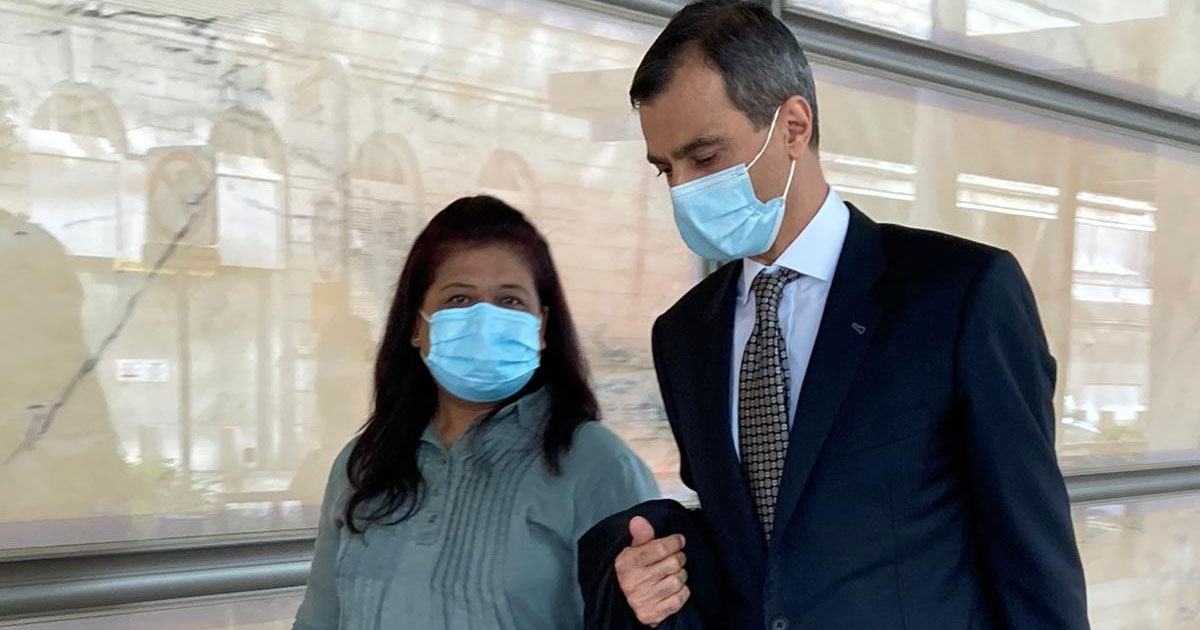The High Court has dismissed former foreign domestic worker Parti Liyani's application for compensation of S$10,000 against the Attorney-General's Chambers (AGC) on June 21, 2021.
Same judge who acquitted Parti dismisses compensation application
High Court judge Justice Chan Seng Onn dismissed the Indonesian woman's compensation application in a 102-page judgement.
He said she failed to prove that the prosecution against her was “frivolous or vexatious”.
He was the judge who overturned Parti's conviction in September 2020 and acquitted her of all charges upon her appeal.
How judge assessed Parti's case
Justice Chan categorised Parti's assertions into three groups:
1. Assertions against the prosecutor’s conduct of the proceedings
2. Assertions against the sufficiency of evidence supporting the commencement and continuation of her prosecution
3. Assertions of malice or dishonesty.
These assertions, Justice Chan said, failed to meet the high threshold for establishing that Parti’s prosecution was frivolous or vexatious, which was a “serious and grave" assertion.
The court held that the assertions did not show any dishonesty, malice or improper motive on the prosecution’s part to embarrass the defence, he said.
Judge: Parti dissatisfied with prosecutors conduct during trial
Justice Chan added that the assertions were mainly related to Parti’s "dissatisfaction with how the deputy public prosecutors conducted the proceedings”.
He said: "However, this court is not the correct forum to air grievances about the deputy public prosecutors’ conduct."
Justice Chan also accepted that it was sufficient to justify the commencement of prosecution based on the evidence of the Liew family and Parti’s own admission in her statements that she had taken some of the items.
He also said the burden of proof lies on the applicant.
He added that any misconduct should be the subject of disciplinary proceedings.
Case against 2 deputy public prosecutors still ongoing
In October 2020, Chief Justice Sundaresh Menon granted Parti leave for an investigation to be conducted into her complaint of misconduct against two public prosecutors in her theft trial.
The case is currently pending.
Parti alleged that Deputy Public Prosecutors Tan Yanying and Tan Wee Hao had cross-examined her unfairly, and both she and the court were possibly misled in how they presented their position to the court.
The Chief Justice found that there were no relevant factors against the granting of leave given the prima facie case of misconduct on the evidence.
A disciplinary tribunal will submit a report to the Chief Justice after hearing the case and investigating the complaint.
Sanctions can be imposed on the prosecutors if disciplinary action is required.
The Chief Justice may appoint an advocate and solicitor or a legal service officer to apply for an order to impose sanctions.
These include ordering a penalty of up to S$20,000, censures, having them struck off the roll, prohibiting them from applying for a practising certificate for up to five years, or other punishments.
Background
Parti's lawyer, Anil Balchandani, had argued in April during the case's hearing that the prosecution withheld evidence at trial, proceeded with charges without sufficient evidence, and made purposeless attacks.
Parti's application for compensation under Section 359 (3) of the Criminal Procedure Code, the first of its kind, could open a pathway for other acquitted appellants to seek recourse, Balchandani said.
Parti sought a compensation order in the High Court.
She applied to be compensated for the statutory maximum of S$10,000 under the Criminal Procedure Code.
This amount is seen as significantly lower than the losses Parti sustained.
The time it took to investigate, prosecute, convict, and eventually acquit her on appeal resulted in her suffering losses of more than S$70,000 as she was unable to work for four years due to the criminal proceedings.
Top photo via
If you like what you read, follow us on Facebook, Instagram, Twitter and Telegram to get the latest updates.
